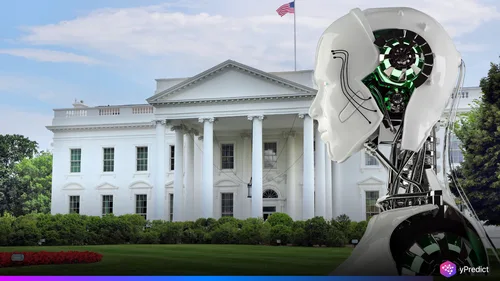
As the second half of 2025 kicks off, CIOs across the U.S. find themselves navigating a clearer, more confident path forward in artificial intelligence. The Trump administration’s recently announced AI Action Plan, along with three executive orders, signals a strong national push toward faster development and adoption of AI technologies. Rather than strict regulation, the roadmap leans into a deregulatory tone,removing barriers, speeding up infrastructure, and suggesting funding for skills retraining.
The message from Washington is loud and clear: the U.S. wants to win the AI race. For enterprise leaders and CIOs, this brings both opportunity and responsibility. The policy shift encourages bold moves in AI strategy. But as with all broad strokes, execution details still feel uncertain. CIOs are now weighing the short-term momentum against the long-term implications,particularly around security, ethics, and global compliance.
U.S. Deregulation Clears the Path,But CIOs Must Mind the Global Maze
CIOs see more freedom to adopt and scale AI, but the global regulatory landscape still demands attention. As Peter Mottram from Protiviti notes, success in AI requires more than just technical readiness , it needs flexible processes that meet different international standards.
While the AI Action Plan supports faster innovation, it also introduces new cybersecurity obligations. These include the creation of an AI Information Sharing and Analysis Center and formalized security frameworks. These shifts suggest that while barriers to adoption may be falling, accountability in operations is increasing. Executives must stay alert to AI compliance developments and prepare systems that adapt globally.
CIOs Should Treat AI as Data on Steroids
Many experts compare the current AI environment to earlier waves of data privacy reform. From GDPR to CCPA, enterprises learned to take data governance seriously,and that lesson still applies. According to Jim Liddle of Nasuni, strong AI depends on strong data hygiene.
Those who have already invested in global data strategies will find themselves better equipped to handle this new phase. As Martha Heller of Heller Search points out, companies don’t need to start from scratch. Instead, they should leverage existing compliance systems and reframe them for AI, because ultimately, AI compliance is just data governance amplified.
Bias and Model Accuracy Remain Tough to Solve
Despite the push for adoption, the administration acknowledges the challenge of bias in AI models. One executive order highlights the need for mechanisms to detect and reduce bias in large language models. However, experts believe this will be one of the hardest issues to address.
CIOs must take this seriously. Most organizations lack mature systems to monitor and prove model fairness. Without clear transparency in training data, it becomes difficult to assess truthfulness. As AI maturity increases, companies will need dedicated evaluation frameworks and tech tools to close this gap.
AI Success Depends on C-Suite Collaboration, Not Just IT
Achieving success with any AI effort requires collaboration across departments. CIOs can no longer operate as an island. They must work with leaders from HR, legal, compliance, marketing and elsewhere to create a unified set of policies. Disjointed workflows can affect the overall performance of the AI and amplify risk.
CIOs must create the governing or steering committees that are multi-functional. In doing so, everyone involved can establish a consistent set of rules around usage, risk management, and ethics. These committees will improve the speed of adoption and inform strategies for emerging regulations.
CIOs Must Act Now on Skills Development and Retraining
The AI Action Plan from the White House has highlighted a core problem facing every business or organization: trained AI talent. While it doesn’t entirely resolve the issue, the plan requests urgent retraining and other proposals, including tax-free reimbursements, and federal training grants.
For CIOs, it suggests that workforce development should be a priority issue. Whether it is related to hiring data scientists or optimizing skilled teams, businesses need to appreciate that how quickly knowledge gaps can be closed, will determine their success.
AI workforce training is no longer simply an optional aspect of training – it is a requirement for competitiveness.






